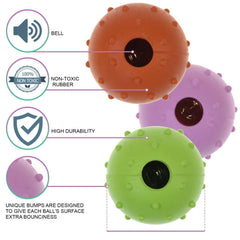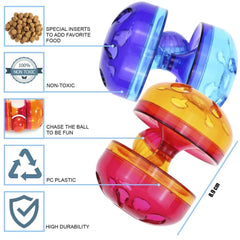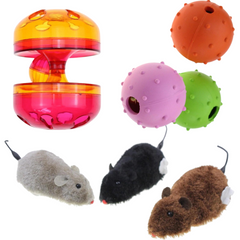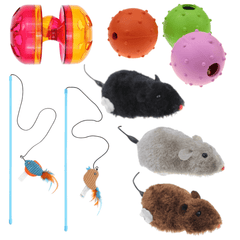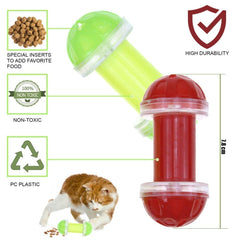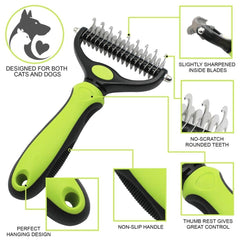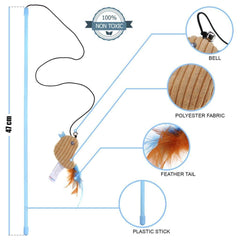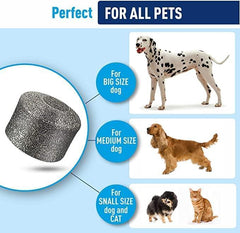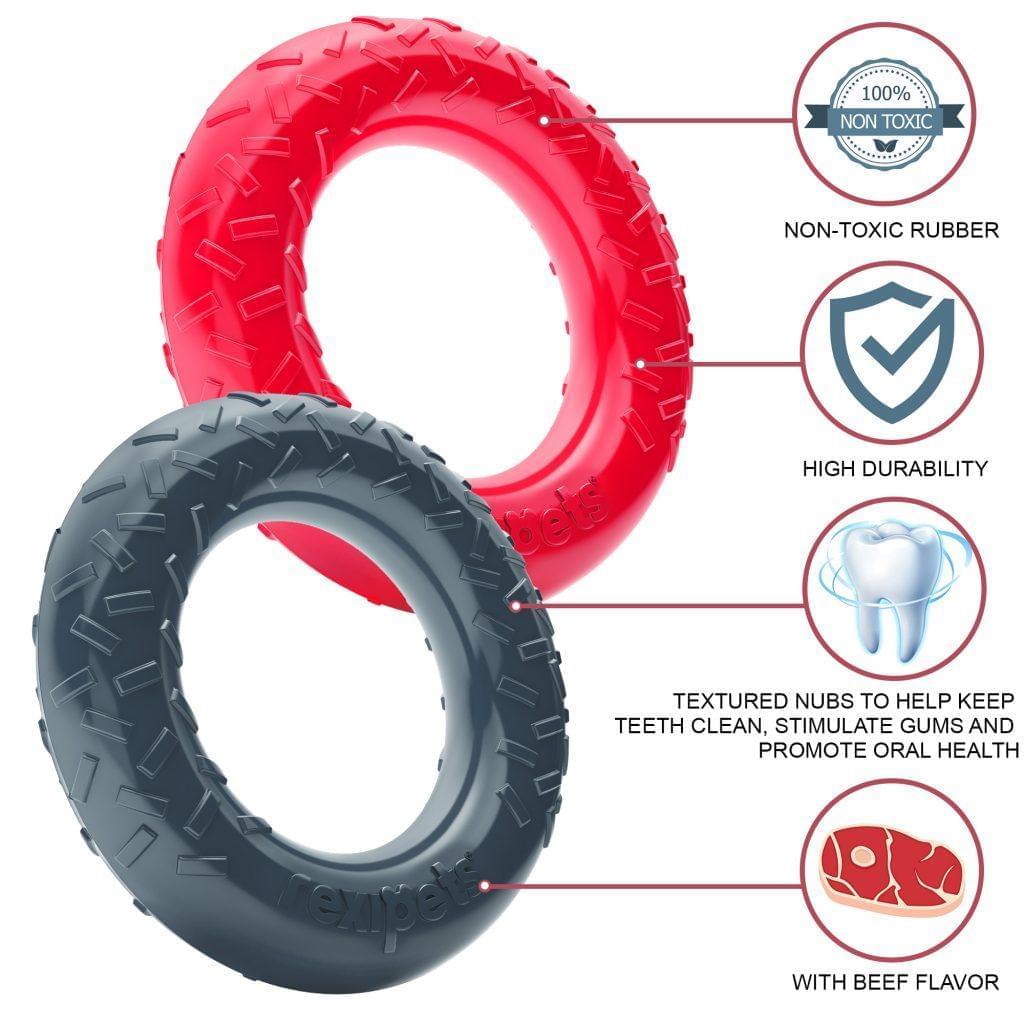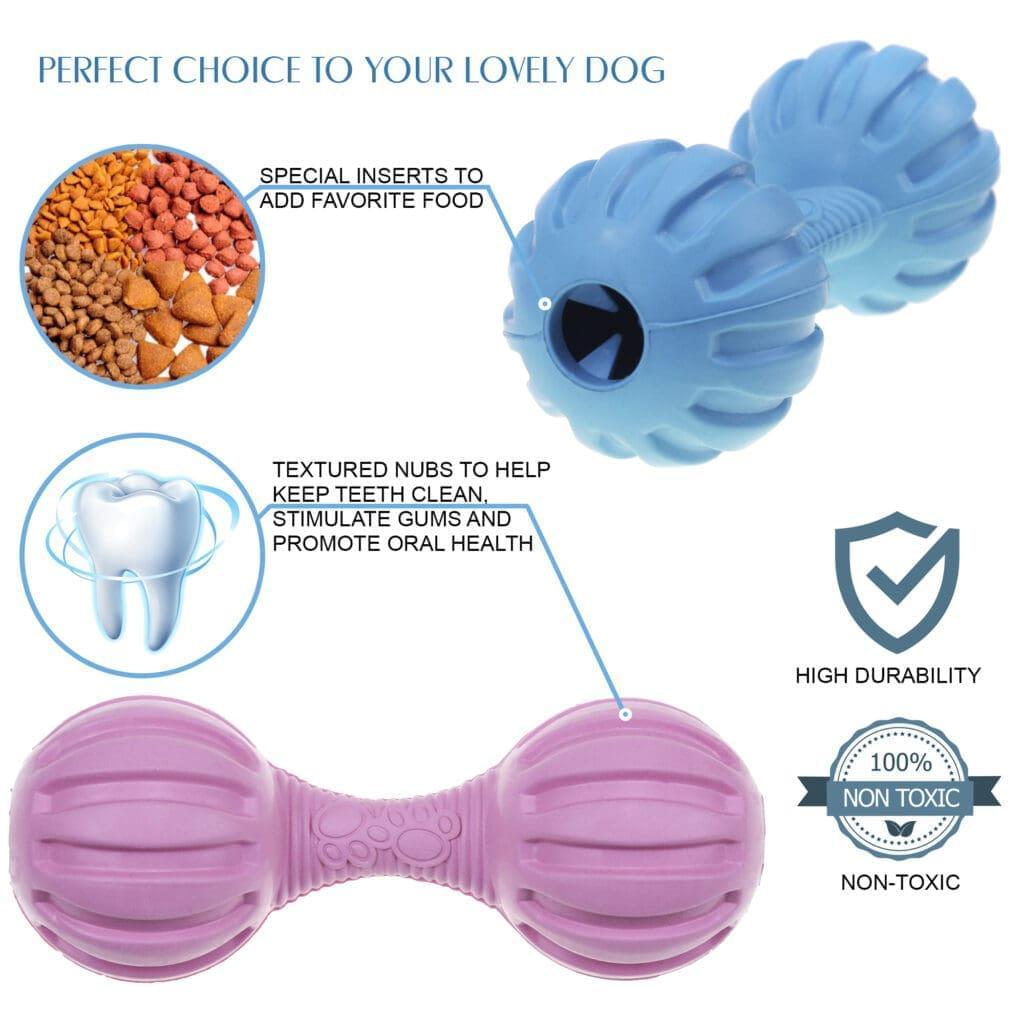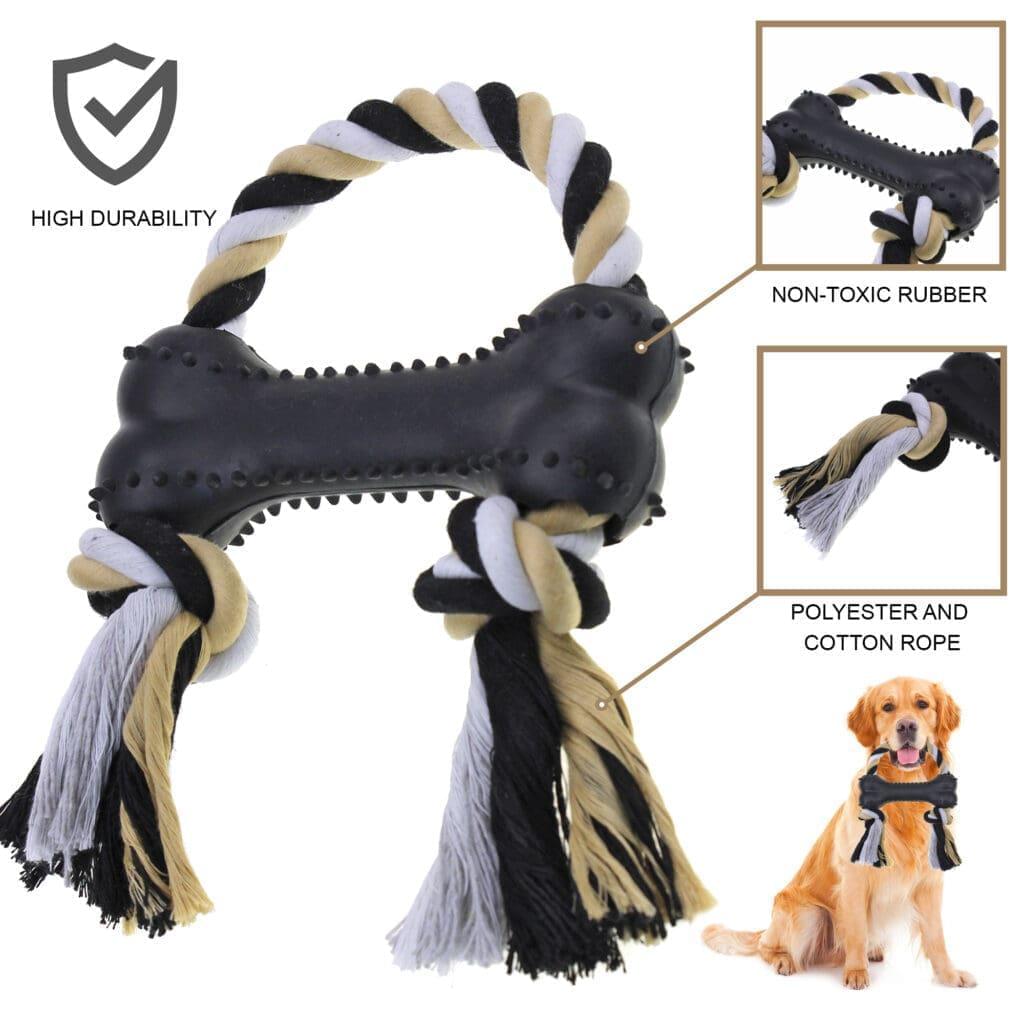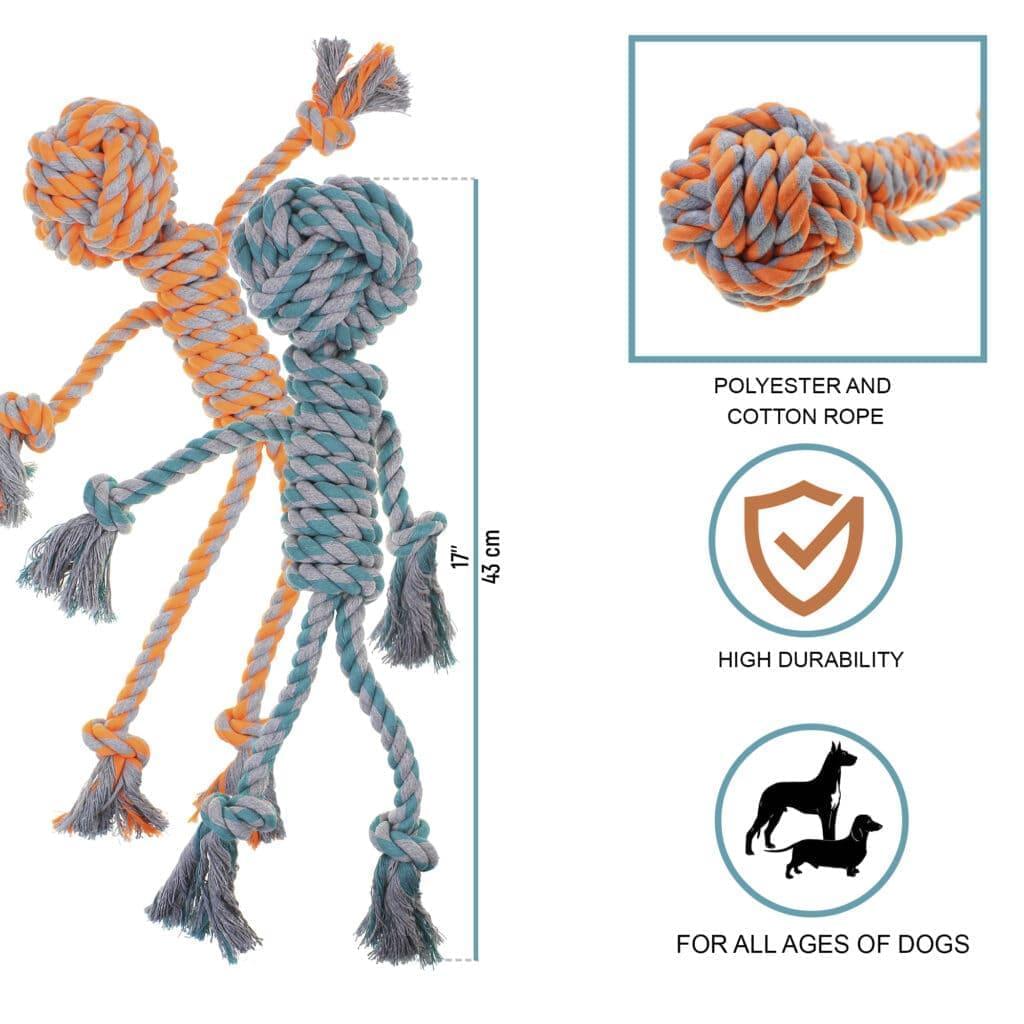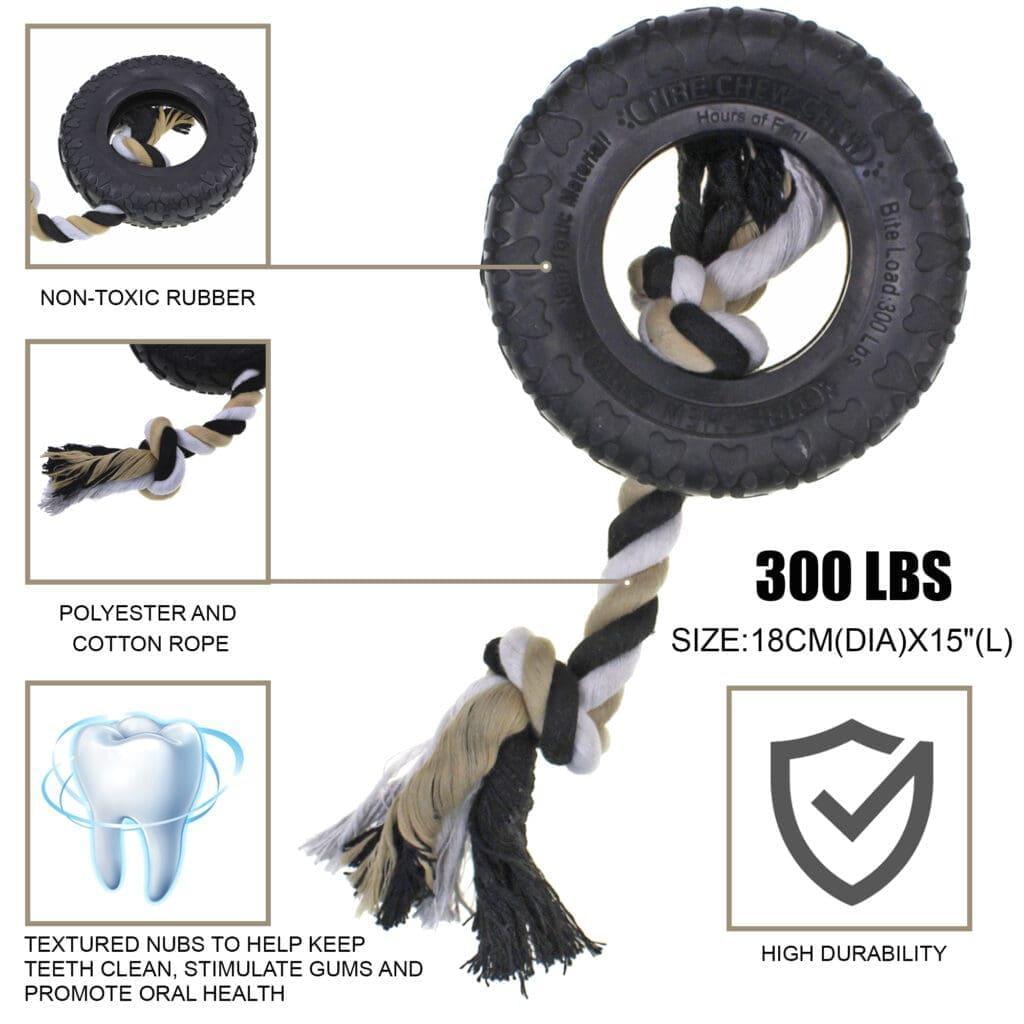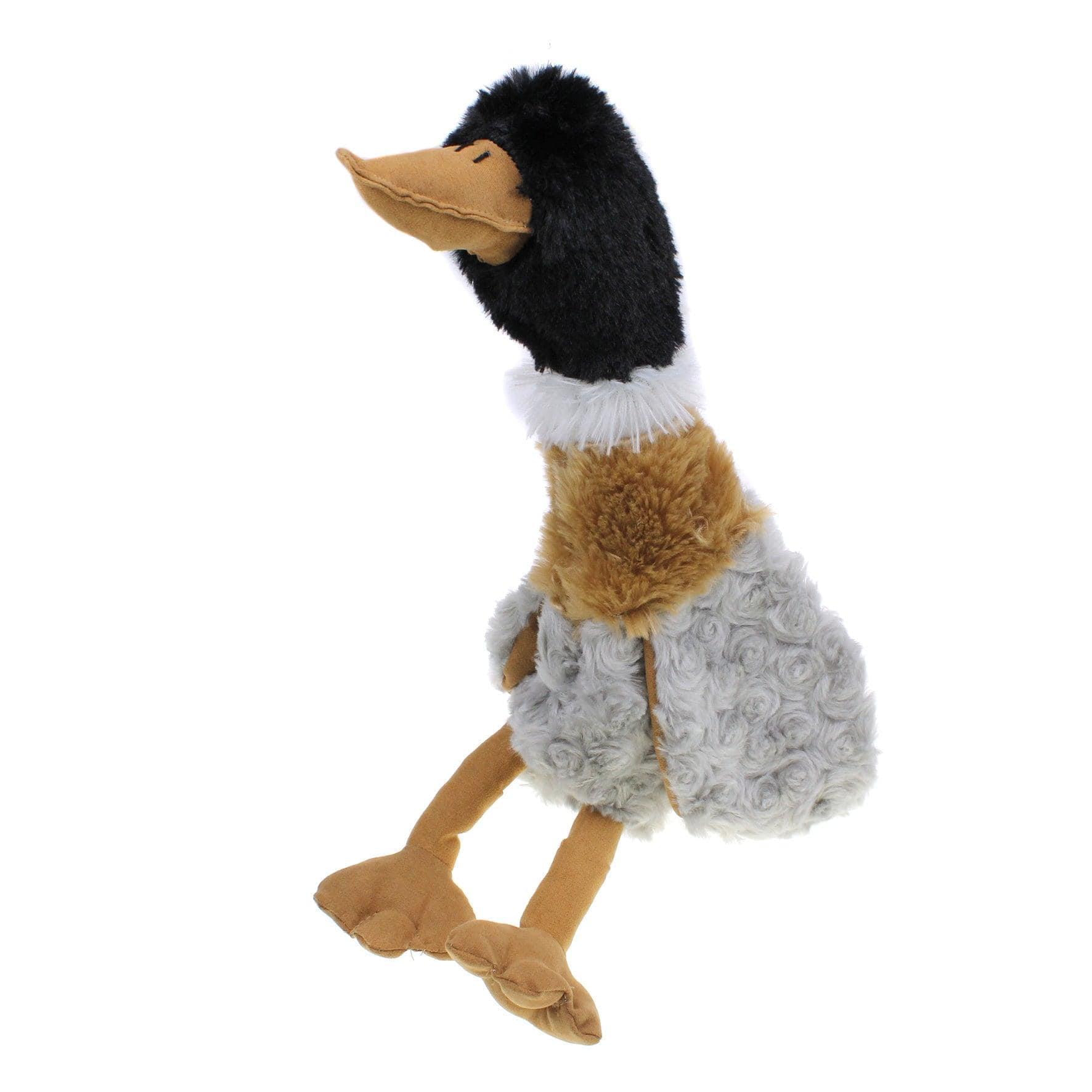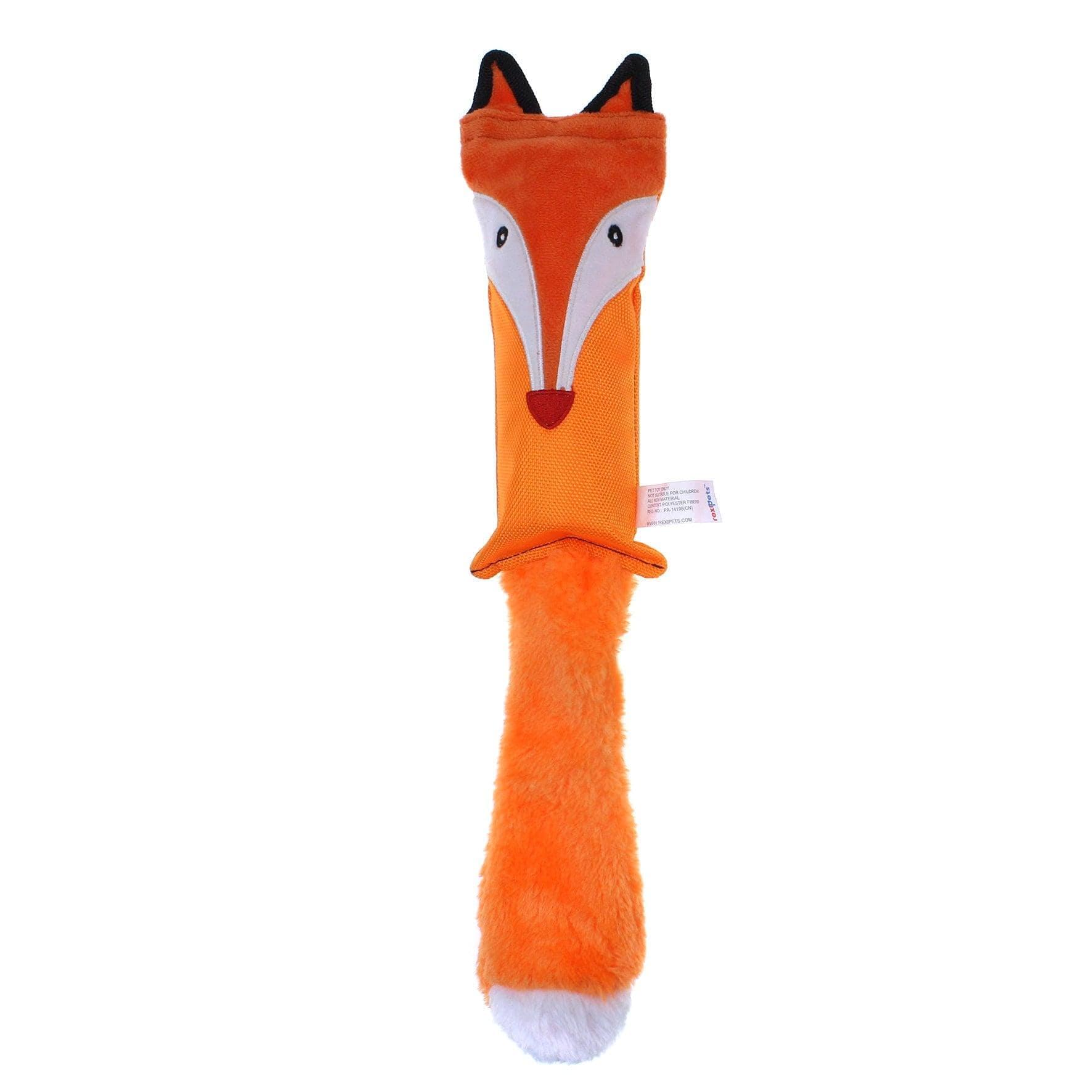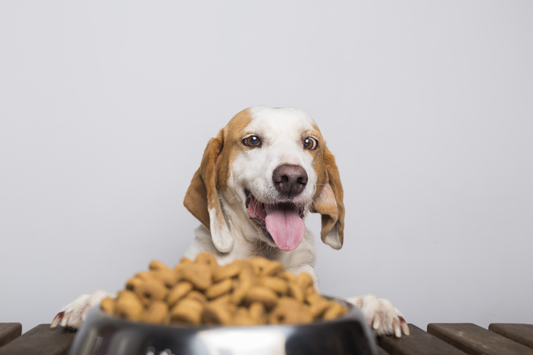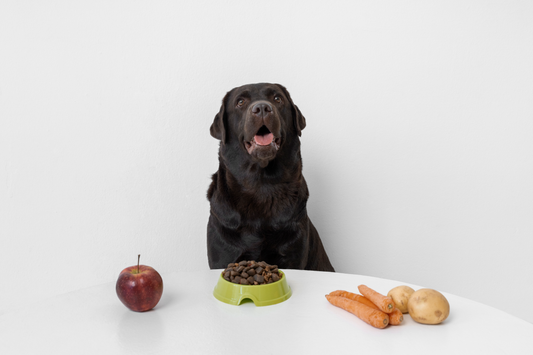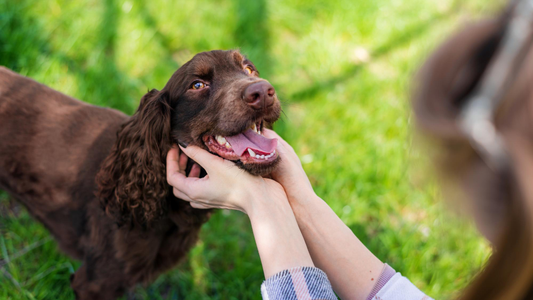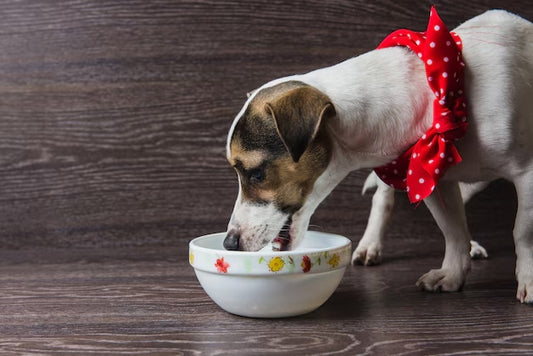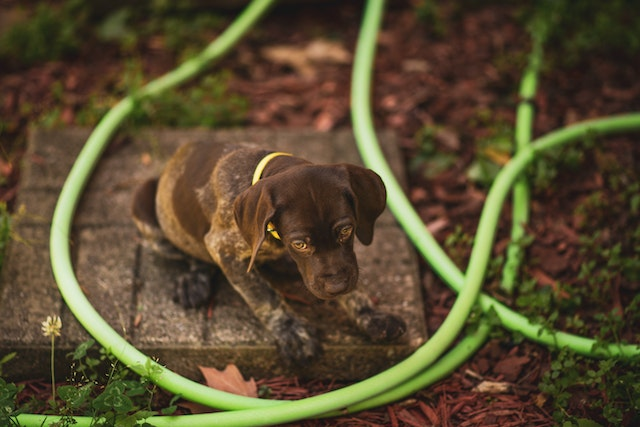
Bringing home a new puppy is an absolute delight! Their endless energy and infectious playfulness can instantly brighten your day.
But let's face it, being responsible dog owners also means dealing with the occasional health hiccups.
So what happens when your adorable little furry friend starts experiencing diarrhea but still acts as if nothing's wrong? Well, get ready to explore the world of a playful puppy in the face of tummy turmoil!
If your puppy has diarrhea, it can be a bit worrisome. And it's essential to remember that some instances are minor and temporary. What is truly mind-boggling is to witness your puppies soldier on, embracing their playful nature despite feeling a bit under the weather.
In this article, we'll dive into the topic of playful puppies with diarrhea. We'll uncover the possible causes behind this common puppy woe, discuss how it may impact their well-being, and provide practical tips for giving them the care and support they need. Plus, we'll highlight when it's crucial to consult a vet for professional guidance.
Why Does My Puppy Have Diarrhea But Still Can Act Normal?
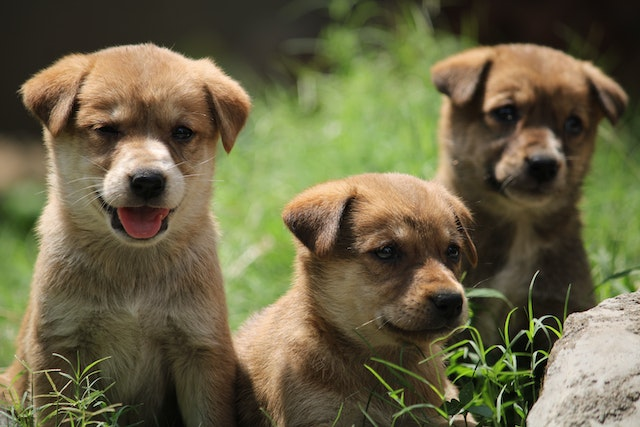
So, it's strange, but sometimes puppies can have a case of diarrhea and still act like nothing's wrong. It's like they've got this superpower to keep being their playful selves even when their tummy is acting up.
How do they do it? Well, let's break it down.
First off, puppies are resilient little creatures. They have an insane amount of energy and an unstoppable zest for life. So even if their tummy is feeling off, they just push through and keep on playing to bring joy into our lives. Why? Because, well, that's what puppies do best!
Another thing to consider is that sometimes the diarrhea isn't too serious. It could be caused by a temporary upset, like a sudden change in diet, or maybe they nibbled on something they shouldn't have.
In these cases, their bodies kick into gear, working hard to get things back on track. So, while they've got a case of the runs, they bounce back quickly and act like it's no biggie.
Oh, and here's another fun fact about puppies: they have super-fast metabolisms. Their little digestive and immune systems are still developing and adapting to all sorts of new foods and stuff around them. So, occasional puppy diarrhea can happen as they figure things out. But their bodies quickly recover, and they're back to their fun little mischievous selves in no time.
Here it is important to remember that not all cases of puppy diarrhea are harmless. Sometimes it could be a sign of something more serious, like infections, parasites, allergies, or tummy troubles. If diarrhea continues, or if your pup seems off with other symptoms like being tired all the time, not eating, throwing up, or getting dehydrated, it's a good idea to reach out to a vet. They'll be able to check things out and make sure everything's okay.
So yeah, puppies are these little champs who can have diarrhea and still act like it's just another day in their crazy puppy world. But it's essential to keep an eye on them and get help if things don't improve. After all, we want our furry friends to be healthy and happy, right?
Now, let's discuss the common causes of diarrhea in puppies so that you can be on the lookout for potential hazards in the future!
Common Causes Of Diarrhea In Puppies?
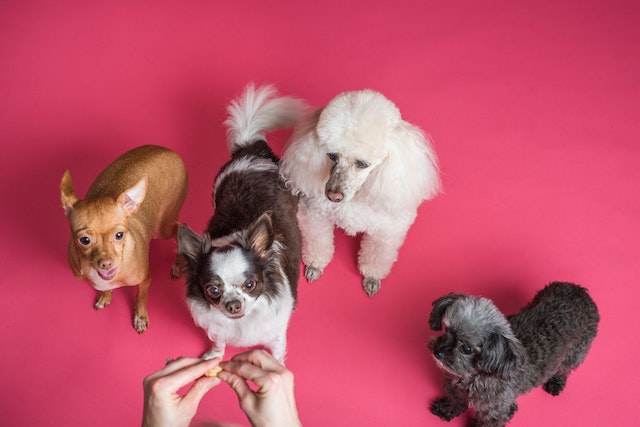
Here are some common causes of diarrhea in dogs:
-
Diet
One common cause of diarrhea in dogs is a sudden change in their diet. Suppose you switch your dog's food abruptly, without gradually transitioning from the previous type of food or introducing new treats without proper adjustment. Doing so can disrupt its digestive system and lead to acute diarrhea.
The good news is that this type of diarrhea usually resolves itself relatively quickly. However, it's essential to remember that sudden changes in a dog's diet can impact digestion and result in loose stools.
To prevent this, it's generally advised to introduce new foods or treats gradually. This allows the dog's digestive system to adapt and minimize the chances of diarrhea occurring.
-
Overexertion
Sometimes, dogs can experience diarrhea if they overexert themselves or get excessively excited about something. Suppose your dog has been playing energetically or has become significantly worked up. In that case, you might notice a few episodes of acute diarrhea before their digestion returns to normal.
The good news is that this issue typically resolves itself within a day. It's essential to recognize that when dogs push themselves too hard or experience heightened excitement, it can temporarily disrupt their digestive system, leading to loose stools.
-
Infection
Dogs can experience diarrhea due to viral or bacterial infections affecting their digestive system. Additionally, mild intestinal distress can also lead to diarrhea. It's essential to recognize that diarrhea in dogs can be a sign of various infections, so it's crucial to seek veterinary attention if you suspect your pet may be unwell.
To determine the underlying cause of diarrhea, it's essential to have a professional veterinarian examine your furry friend. Bacterial or viral infections can occur due to various factors such as contaminated dog food, exposure to germs, kidney disease, or contact with infected animals.
These bacterial infections can disrupt the normal functioning of the dog's digestive system, resulting in loose stools. If left untreated, these infections can worsen, lead to further complications, and threaten the immune system.
-
Parasites
Diarrhea in dogs is often associated with parasites, particularly those that affect the digestive system. Regular deworming treatment can help prevent such issues. However, pet owners must remember that worms and other intestinal parasites are commonly found in young puppies who have not yet undergone deworming.
Parasites can enter a dog's body through various sources, including ingesting contaminated soil or water, consuming infected prey, or even from their mother during birth or through nursing. These parasites can cause irritation and inflammation in the digestive tract, resulting in diarrhea as one of the symptoms.
To safeguard your puppy from the harmful effects of parasites, following a deworming schedule recommended by your veterinarian is crucial. This helps control and prevent parasitic infections, reducing the likelihood of diarrhea and other related health issues.
-
Allergy
Certain dogs may develop diarrhea due to intolerance or allergies. These can be specific ingredients in their food that you need to spot. If you observe a consistent pattern of diarrhea occurring after your dog eats, it could indicate a food-related issue. One approach to tackling this is transitioning your dog to a different type of higher-quality food.
Typical dog allergens include grains, beef, dairy, or artificial additives. These ingredients can cause digestive disturbances and result in diarrhea in dogs with sensitivities or allergies. By identifying and avoiding these potential triggers, you can help alleviate the symptoms and promote better digestive health for your furry friend.
-
Stress
Stress is a significant contributor to diarrhea in dogs. When dogs experience high stress levels or become upset about certain situations, they often go through multiple episodes of diarrhea before returning to normal. It's crucial to understand that diarrhea should resolve once the stress factor is removed and your dog is given time to calm down.
Stress can stem from various sources, including environmental changes, loud noises, separation anxiety, or unfamiliar circumstances. These stressors can disrupt the normal functioning of a dog's digestive system, resulting in loose stools.
Creating a calm and comfortable environment is essential to help your dog recover from stress-induced diarrhea. Provide a quiet space where they can relax and feel secure. Additionally, it's beneficial to identify and address potential stress triggers to prevent recurrent episodes of diarrhea.
By understanding and managing your dog's stress levels, you can help them maintain a healthy digestive system and minimize the occurrence of diarrhea.
When To Seek Help?
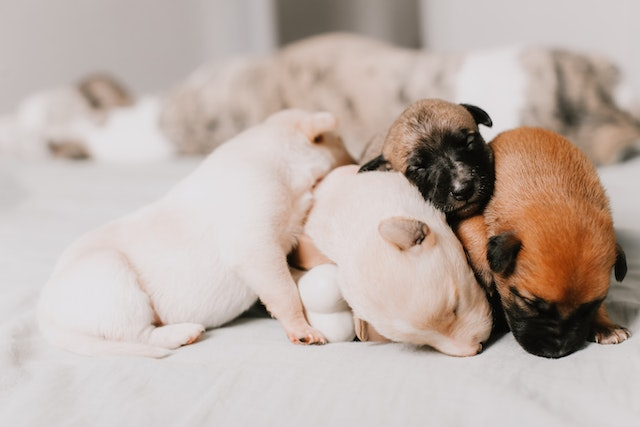
Awareness that specific symptoms could indicate a more severe issue with your puppy's diarrhea is crucial. If your little buddy has any of these signs, it's essential to contact your veterinarian immediately:
-
Bloody diarrhea
If you notice blood in your puppy's stools, it could be a sign of a severe condition that requires immediate attention.
-
Black, tarry stools
This can indicate the presence of digested blood in the dog's diarrhea stool, which may indicate internal bleeding. It's essential to have your puppy examined by a vet.
-
Fever
Suppose your puppy has an elevated body temperature. In that case, it may indicate an infection or an underlying illness that needs medical attention.
-
Vomiting
Frequent vomiting, especially alongside severe diarrhea, can quickly lead to dehydration and other complications. It's best to have your puppy evaluated by a vet.
-
Pale gums
Pale gums are usually a sign of anemia or inadequate oxygen supply, which warrants a prompt veterinary assessment.
-
Lethargy or lack of energy
If your puppy is exhausted or lacks their usual playful spirit, it could indicate an underlying health issue that requires attention.
-
Refusal to eat or drink
Loss of appetite and decreased thirst may indicate a severe illness, and a professional must examine your puppy.
-
Abdominal pain
If your puppy's belly seems tense, or if the dog cannot find a comfortable position, or exhibits signs of distress, it's essential to seek veterinary care promptly.
Remember, you can wait for a day or so if your puppy's diarrhea is the only symptom and they still appear happy and routine. But it's essential to seek help if it continues even after 48 hours.
If in doubt, or if any of the above symptoms are present, don't hesitate to contact your veterinarian for guidance. They are best equipped to assess your puppy's condition and provide appropriate care.
To determine if your dog has diarrhea, refer to the dog fecal score chart below- it is essential to know that a score above 4 should have you on the lookout.
-
Hard and dehydrated feces. They are hard to pass for dogs and make them feel uneasy
-
Firm yet not too hard. They are segmented
-
Long log-shaped in a continuous form and a wet surface
-
Wet and reshaped log-shaped feces that lose their form when picked
-
Very moist feces that aren't in log forms but rather in piles
-
Textured yet not defined form and seems like spots or piles in appearance
-
Runny, non-textured poop that forms flat puddles
How To Get Rid Of Diarrhea In Puppies At Home?
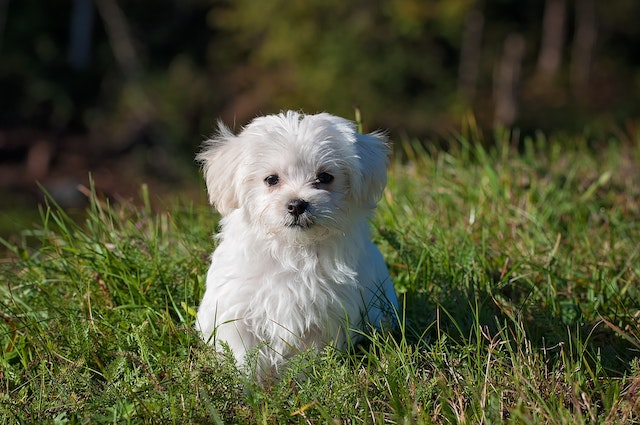
Here is how you can treat your puppy's diarrhea at home:
Bland food
When your puppy has diarrhea, it's essential to give it's digestive and immune systems a rest. However, complete fasting is not the best approach. Instead, you can feed them a light diet of plain boiled white rice, which is gentle on their stomach.
Add some boiled white chicken to make the rice more appealing, but remember to hold off on feeding them the chicken until the next day. Avoid adding fats or spices to the food, as these can further upset their tummy.
By providing bland food and an easy-to-digest diet, you can help soothe your puppy's upset stomach while providing them with essential nutrients.
Hydration
Dehydration can be dangerous for puppies when they have diarrhea. Frequent episodes of diarrhea can cause puppies to lose water and essential electrolytes. It is vital to provide them with plenty of water. This will help them recover what they lose while pooping.
If your puppy doesn't seem interested in drinking water, try giving them an electrolyte solution or freezing water into cubes for them to lick and consume gradually.
Ensuring that your puppy stays hydrated is crucial for their recovery. By offering water or alternative options like electrolyte solutions or frozen cubes, you can help prevent dehydration and support their overall well-being.
Probiotics
These are beneficial bacteria that help maintain a healthy balance in your puppy's or dog's gastrointestinal tract and system by keeping harmful bacteria in check. It's essential to balance the good bacteria with the bad ones for your puppy's overall health.
Yogurt or Yakult can be a safe and healthy source of probiotics for your puppy. Adding a tablespoon of yogurt or Yakult to their food can help increase the population of good bacteria in their stomach.
Smaller portions
Instead of giving your puppy one large meal, dividing their food into smaller portions is beneficial. This helps reduce the burden on their stomach and digestive system while providing the necessary nourishment to recover from diarrhea.
Breaking the meals into smaller portions allows your puppy's stomach to quickly handle the new food. This approach helps prevent overwhelming their tummy and supports a smoother digestion process.
Medicine
Medications can provide relief to a puppy with diarrhea in various ways. Your veterinarian may prescribe specific drugs to address different aspects of the condition, such as
- Slowing down bowel movements
- Introducing beneficial bacteria
- Preventing dehydration
- Reducing vomiting
- Eliminating worms
- Restoring energy
- Treating the underlying cause of diarrhea
It's crucial to consult your veterinarian before administering any medication to a young puppy. They will evaluate your puppy's specific condition and determine the appropriate medications. On the basis of that, they will provide you with proper dosing instructions and guidelines.
Fiber-rich foods
Including fiber-rich and binding foods in your puppy's diet, such as sweet potato, pumpkin, brussels sprouts, and specialized food supplements can help normalize their stool consistency.
These foods contain the right amount of fiber and properties that reduce fluid loss, allowing the poop to regain solidity. By adding bulk and regulating the digestive process, these fibrous foods promote more solid and well-formed bowel movements in your puppy. It's essential to consult your veterinarian for tailored dietary advice and ensure the chosen foods suit your puppy's specific needs.
Time
Allowing your puppy's stomach to rest and recover is essential. Since completely starving them is not an appropriate option, increasing the time between meals is better.
This extended interval ensures that your puppy's gut receives the necessary nutrition while giving its belly plenty of time to recover and relax.
How To Prevent Puppy Diarrhea?
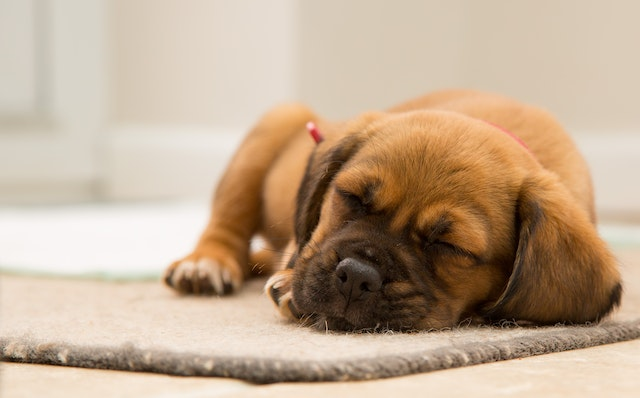
Diarrhea episodes can occur in any puppy, but there are steps you, as pet parents, can take to reduce the likelihood.
Here are a few simple tips for preventing diarrhea in puppies:
- Supervise your puppy to prevent them from ingesting harmful substances.
- Crate your puppy when they are unsupervised to ensure their safety.
- Introduce new foods gradually over 7-10 days to allow for proper digestion.
- Use pet-safe disinfectants to clean surfaces and prevent the spread of harmful bacteria.
- Follow the vaccination schedule that is recommended by your veterinarian to protect against infectious diseases.
- Until your puppy is fully vaccinated, keep it away from unvaccinated dogs and public areas.
- Consult your veterinarian regarding parasite prevention and deworming protocols.
- Maintain cleanliness by promptly cleaning up after your puppy and other pets to minimize exposure to fecal matter.
While some factors affecting your puppy or dog's health and well-being may be beyond your control, you can significantly impact their health and happiness. By implementing these preventive measures, you can reduce the chances of your puppy experiencing diarrhea and can support their overall well-being.
Final Words!
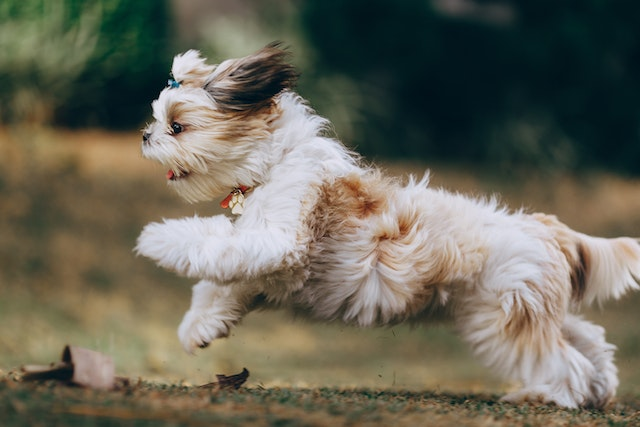
Even though a puppy may experience diarrhea, it doesn't mean they lose their playful spirit!
It's critical to address the underlying reasons behind diarrhea to provide the necessary care. It will also help you take all precautions to prevent it from happening again. Remember to consult with your veterinarian for proper guidance and treatment options.
With a combination of the proper care, a balanced diet, and a little patience, your playful pup will be back to its regular bowel movements in no time.
So, embrace the puppy's resilience, keep their spirits high, and let the joyous playtime continue. At the same time, we work toward resolving the tummy trouble.
After all, a little diarrhea should never dampen their playful spirit!
FAQs
Should I Keep Feeding My Puppy if He Has Diarrhea?
When your puppy has diarrhea, it's generally advised to continue feeding them, but with some considerations. Consulting your veterinarian is crucial to assess the severity of the dog's diarrhea and get advice.
In most cases, feeding small, frequent meals of easily digestible foods can be beneficial. This helps reduce the workload on the digestive system while providing necessary nutrients. Additionally, ensuring that your puppy stays hydrated is essential to prevent dehydration which is a deadly consequence of puppy diarrhea.
How Long Is it OK for My Puppy to Have Diarrhea?
In general, if your puppy has diarrhea but is still playful, it is reasonable to wait a day or two to see if the condition resolves on its own. During this time, you can provide supportive measures such as ensuring proper hydration, feeding a bland diet, and monitoring your puppy's gastrointestinal tract closely for any worsening symptoms.
However, if dog diarrhea persists beyond 48 hours, becomes severe, or is accompanied by other concerning signs such as dehydration, lethargy, or vomiting, it is crucial to seek veterinary attention promptly. Prolonged diarrhea in adult dogs or puppies can lead to dehydration, nutrient deficiencies, and other complications, so it's best not to delay seeking professional advice.
